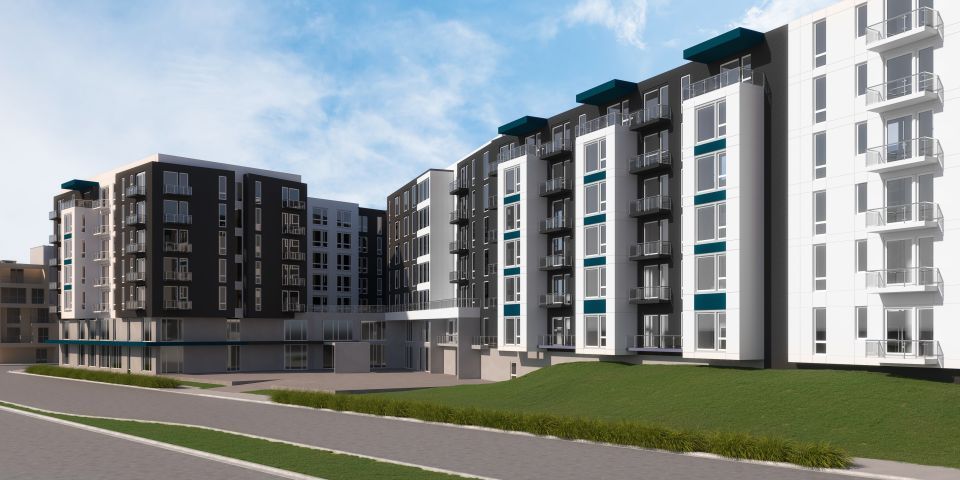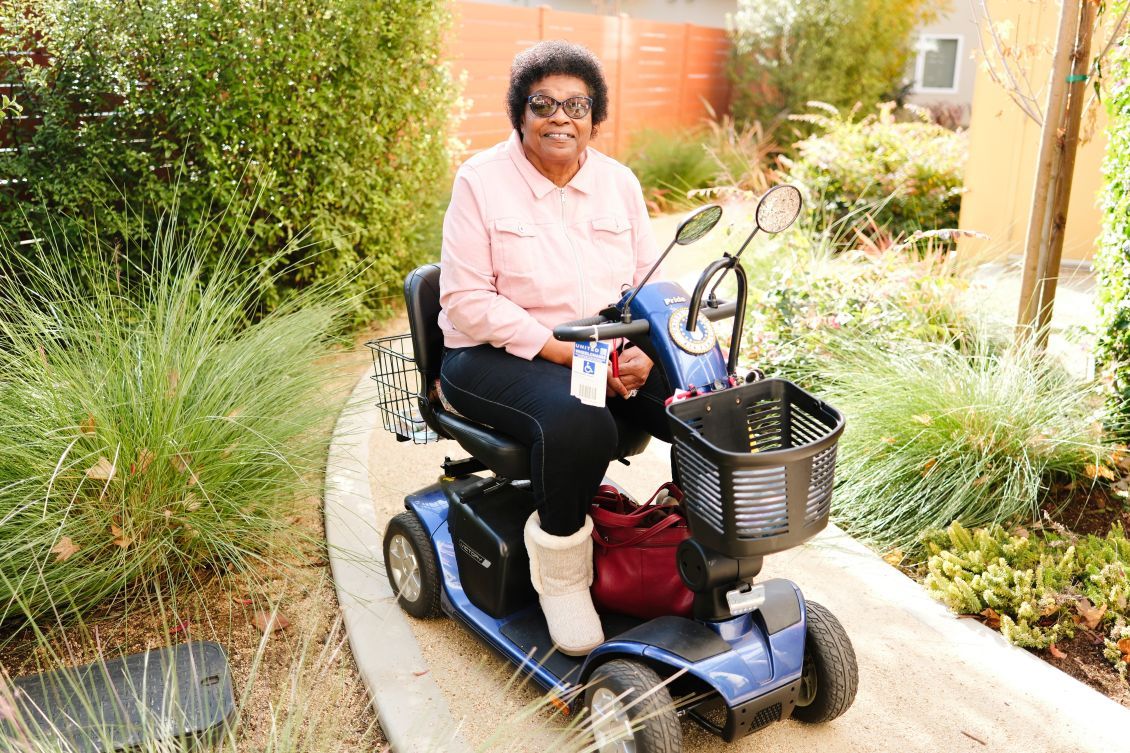Around one in four people are expected to experience a disability that could require an accessible home and services, but our housing stock isn’t built for that reality. According to a recent report from the Joint Center for Housing Studies of Harvard University, around 96% of U.S. homes lack features like no-step entries and wide doors that accommodate wheelchairs and other mobility aids.
"We've had the [Americans with Disabilities Act] for almost 33 years now, and there's still so much resistance from people or a lack of understanding about why these things are important," Rebekah Taussig told the American Planning Association. A disability advocate and author of Sitting Pretty: The View from my Ordinary, Resilient, Disabled Body, she regularly speaks and writes on the experience of navigating a built environment that was not created to support people with disabilities—particularly when it comes to housing.
"I've moved four times in my adulthood, and every single time, I have run into this feeling [that] there is no place for me to live in [my] city. I find places that are affordable but profoundly inaccessible, places that are accessible but way too expensive that I could never afford, or public housing that should be accessible and affordable but literally has waiting lists years long,” Taussig said. “I think that what has become apparent is that legislation can only go so far without a deep cultural shift.”
Enterprise Community Loan Fund (ECLF), Enterprise’s community development financial institution (CDFI), is dedicated to spearheading that shift by supporting community-serving projects that prioritize access, safety, and dignity for people living with a disability of any kind. These four properties demonstrate the breadth of housing and residential resources ECLF’s partners are providing—especially to those who are extremely low income or experiencing homelessness:

- 192 Shoreline: ECLF provided a $1.5 million construction loan to TWG Development for new construction of 250 units of affordable housing in Shoreline, Washington, that will support people with disabilities and who have experienced homelessness. The property includes a 17,000-square-foot community space that will be operated by Alpha Supported Living Services, a nonprofit that serves people with intellectual and developmental disabilities.
- Freedom’s Path: ECLF provided $4.6 million in equity bridge financing to Solutions for Veterans, a nonprofit developing supportive housing and coordinating services for veterans on VA Medical Center campuses around the country. With 34 units of supportive housing in Waco, Texas, the project will create much-needed supportive housing for veterans, including those who are homeless, at risk of homelessness, and living with a disability.
- White Plains Road Supportive Housing: ECLF provided a $9.8 million acquisition and predevelopment loan to WellLife, a nonprofit dedicated to the wellness of New Yorkers faced with disabilities, mental illness, and addiction, to fund the acquisition and predevelopment costs associated with construction of 136 units of affordable housing in the Bronx. Sixty-six units will be supportive housing, with WellLife providing residents with comprehensive behavioral health services, including psychiatric rehabilitation, case management, consumer self-help, family and peer support, and residential services. The project will create affordable housing with on-site services for formerly homeless individuals and low-income households in New York City.
- Wilson House and Buchanan House: ECLF provided $2.8 million in construction financing to Homes for Life Foundation for the renovation of two separate semi-independent group homes for individuals with development disabilities in Los Angeles. The renovations, which are funded by ECLF and California’s Department of Housing and Community Development, will add new units and create greater accessibility to a site that has been in operation for decades. Between two properties, the 12 homes will maintain long-term supportive housing for developmentally disabled adults that require rehabilitative services and care.
